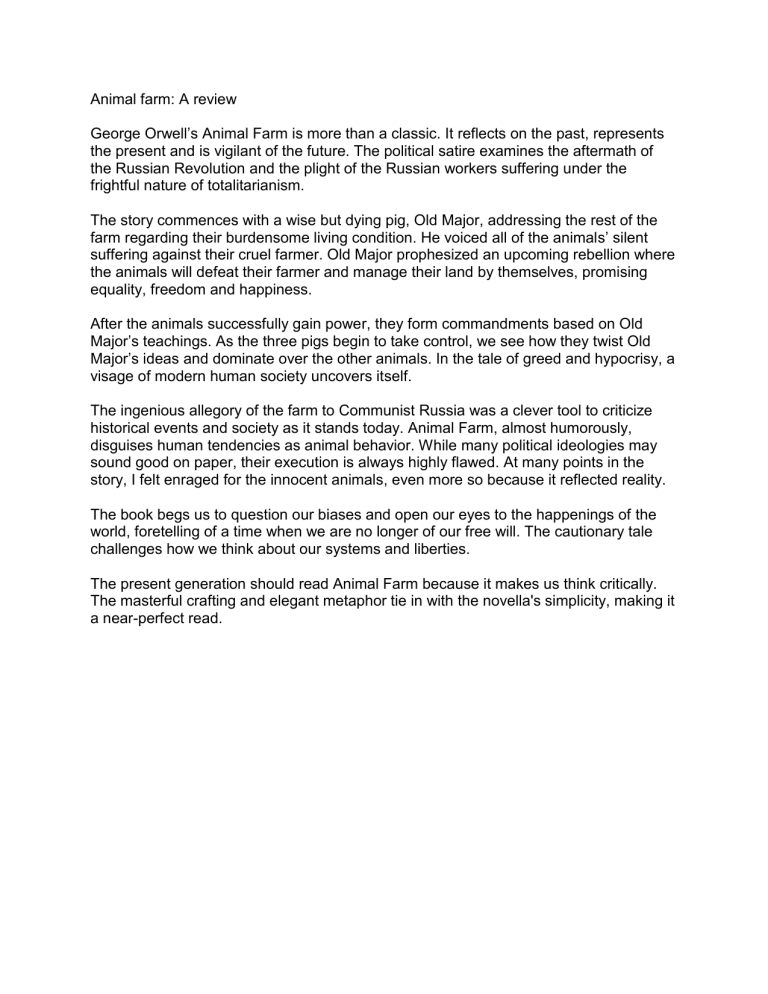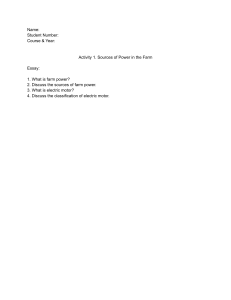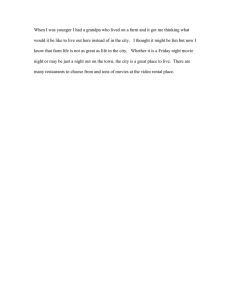
Animal farm: A review George Orwell’s Animal Farm is more than a classic. It reflects on the past, represents the present and is vigilant of the future. The political satire examines the aftermath of the Russian Revolution and the plight of the Russian workers suffering under the frightful nature of totalitarianism. The story commences with a wise but dying pig, Old Major, addressing the rest of the farm regarding their burdensome living condition. He voiced all of the animals’ silent suffering against their cruel farmer. Old Major prophesized an upcoming rebellion where the animals will defeat their farmer and manage their land by themselves, promising equality, freedom and happiness. After the animals successfully gain power, they form commandments based on Old Major’s teachings. As the three pigs begin to take control, we see how they twist Old Major’s ideas and dominate over the other animals. In the tale of greed and hypocrisy, a visage of modern human society uncovers itself. The ingenious allegory of the farm to Communist Russia was a clever tool to criticize historical events and society as it stands today. Animal Farm, almost humorously, disguises human tendencies as animal behavior. While many political ideologies may sound good on paper, their execution is always highly flawed. At many points in the story, I felt enraged for the innocent animals, even more so because it reflected reality. The book begs us to question our biases and open our eyes to the happenings of the world, foretelling of a time when we are no longer of our free will. The cautionary tale challenges how we think about our systems and liberties. The present generation should read Animal Farm because it makes us think critically. The masterful crafting and elegant metaphor tie in with the novella's simplicity, making it a near-perfect read.

